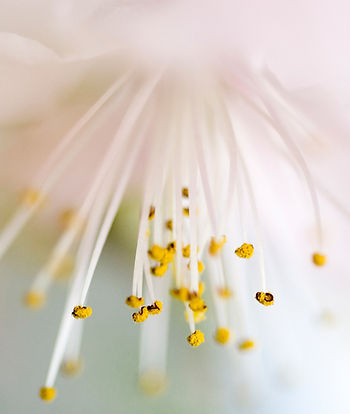Manuka Honey Guide – Exploring The “Mystery” Behind Manuka Honey
Honey is not just beneficial for sweetening things; it can in fact improve your animals health with its many properties. Many people consume manuka honey the world over, not just because they like the way it tastes but because it has many nutrients that are beneficial to the body and this is true for your pets too.
How It Is Made
Originating from New Zealand, the manuka plant is the source of manuka honey and it is produced when bees feed on its flowers. In some areas across the world, the manuka plant is known as the tea tree.
Common Applications – Past and Present
Among the health properties of the manuka tree is its antibacterial property. People have been using it for years as mouthwash due to its antibacterial remedies. This natural antifungal property is carried over into the honey that is made from this plant and so in addition to tasting good and having the already natural antibacterial property of honey, there is double protection. This honey can be used to dress wounds. It prevents the rapid spread of germs and fungal colonization, therefore protecting a wound from becoming worse and enhancing natural healing.
The method of using honey to cover a wound has been in practice for thousands of years. Long ago, people used honey to protect their wounds from germs; it was especially helpful if a person was out in the wilderness and could not get immediate medical assistance. Even in recent times such as the First World War, it was used as a germ deterrent and it made it easy to remove bandages because it did not stick to them. It is the natural healing qualities of Manuka Honey as to why we include it into our product because it just makes sense.
Studies Show Strong Antibacterial Properties
The results of a number of tests and thorough research from independent sources have come to suggest that manuka honey is a stronger agent and able to neutralize some types of bacteria which may form a resistance to disinfectants.
Researchers all across New Zealand and the UK have over the years examined and paid close attention to the many properties of the manuka plant and looked into all of the possible applications of its nutrients and as you would imagine, they are quite extensive.
Manuka Honey Health Benefits
Manuka honey can be used to give your animal a boost of energy. A daily intake would be enough to renew your animals energy and strengthen their immune system. Sprinkling our blends on your pets food daily will give your pet a healthy boost.
Another way this honey works as a healing agent is through its antiseptic properties, which are similar to peroxide when used for certain medical issues. The properties present in this honey make it useful for curing eye infections and ear infections.
One interesting fact that researchers found is that it has an unusual absence of hydrogen peroxide. Typically honey is expected to have a level of hydrogen peroxide in its makeup, which is the basis of its intrinsic healing properties, but the manuka variety has a more powerful composition of healing properties and a non-peroxide activity which accentuates the process. Researchers believe that this reverse activity blends well with the rest of its healing properties to make it a powerful antibacterial substance.
Animals who suffer from recurring digestive upsets, general unwellness will find that having a regular dose can be very helpful. The antibacterial agents work together to fight off germs which cause opportunistic infections and give your body’s healing properties a natural boost.
Some of the health problems that Manuka Honey is known to help with in animals are:
-
Diarrhoea
-
Upset Stomach
-
Sores and bruises
-
Burns
-
Skin Ulcers
-
Scars
-
Open Wounds
-
Infections
-
Insect bites
Final Thoughts
Natural remedies have always been better when dealing with some ailments since you do not have to worry about side effects, and in most cases, the remedy you use tends to heal more than one condition, therefore improving your animals general health in ways you could not imagine. Clearly the uses of honey in general health go wider than anyone could have imagined, but it is not surprising though; nature has a way of answering some of our difficult questions, especially in the field of medicine. With our simple sprinkle bottle it makes it easy to give to your pet by just sprinkling onto your pets food and look at all the health benefits your pet can get from a simple daily dose.
References:
Jenkins, R et al. (2011), “Manuka honey inhibits cell division in methicillin-resistant Staphylococcus aureus”, J Antimicrob Chemother. 2011 Nov;66(11):2536-42. Epub 2011 Sep 7 [view]
Nayak PA. et al. (2010), “Effect of Manuka honey, chlorhexidine gluconate and xylitol on the clinical levels of dental plaque”, Contemp Clin Dent. 2010 Oct;1(4):214-7 [view]
Gannabathula S. et al. (2002), “Honey: a potent agent for wound healing?”, J Wound Ostomy Continence Nurs. 2002 Nov;29(6):295-300 [view]
Leong AG. et al. (2011), “Indigenous New Zealand honeys exhibit multiple anti-inflammatory activities”, Inn

























